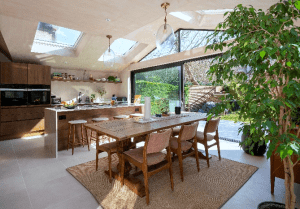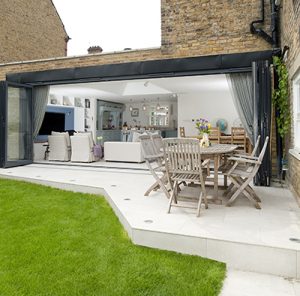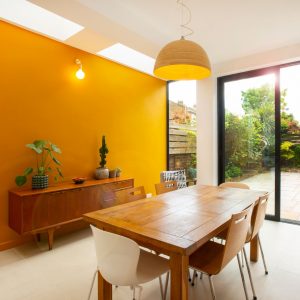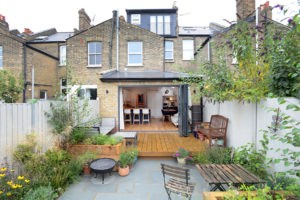Whether you’re planning a modest side addition to your kitchen, or opting for a full-on rear extension, home renovation can be a bit daunting, especially when you’re just starting out.
Regardless of scale, projects like these can be expensive, time-consuming and often stressful, so thorough planning is essential. To help you navigate this process, here are some of the key points to consider before embarking on your home extension journey.
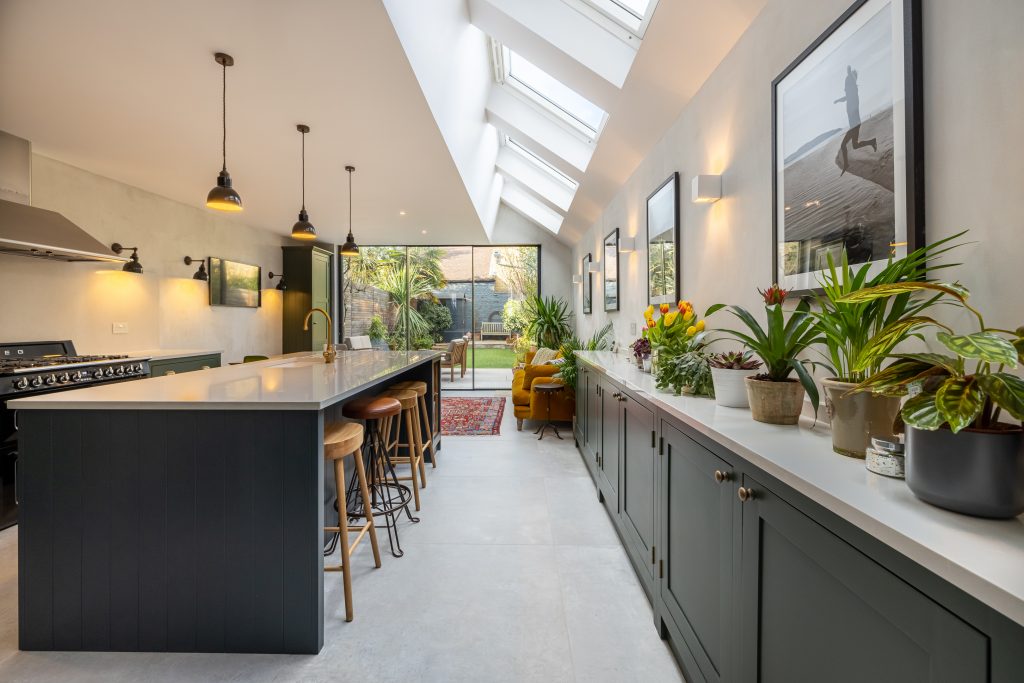
Budget
Firstly, do you have a clear budget for your project? Setting a realistic budget will help you stay on track, saving you time and money, and reducing stress. You will therefore need to gain a thorough understanding of the required costs, particularly in areas like design, professional services, materials and overall planning.
There are also several hidden costs that can be often overlooked, including waste removal, insurance, measured surveys, taxes, legal fees, and material costs. Plus, the all-important contingency budget – usually between 10-20% of your build costs – that will cover any unexpected costs that inevitably arise.
For more tips on creating a budget and saving money on your build, check out our blog *link* And remember to seek professional advice here to help you find the best course of action for you.
How Much Value Will Your Project Add to Your Home
Consider how your project will increase your home’s value. Take the time to identify designs that offer substantial returns, either by consulting a local estate agent or architect, or through your own research. This could be hugely beneficial in helping you align your current plans with features that truly enhance your property’s worth.
For example, loft and cellar conversions can increase your home’s value by anything from 10-25%, depending on the project requirements. Additionally, investing in high-quality features like premium glazing not only adds timeless appeal but will also significantly improve your home’s energy efficiency, increasing its value.
When it comes to renovating, it’s important to think of the big picture. Even if you don’t plan on moving anytime soon, you should view your project as an investment into your future.
Energy Efficiency
Enhancing the energy efficiency of your extension is key for adding value to your home and reducing overall living costs. When planning your design and budget, consider the most energy efficient and sustainable options, and decide if prioritising these elements is worthwhile for you.
There are several ways to improve the energy efficiency of your home, including improved insulation, sustainably sourced materials and efficient heating systems. A key factor is your choice of glazing. Good quality glazing can significantly improve your home’s thermal performance, saving you money in the long run.
Energy efficiency should be a key consideration to your budget, especially when it comes to balancing the short-term costs with the long-term benefits.
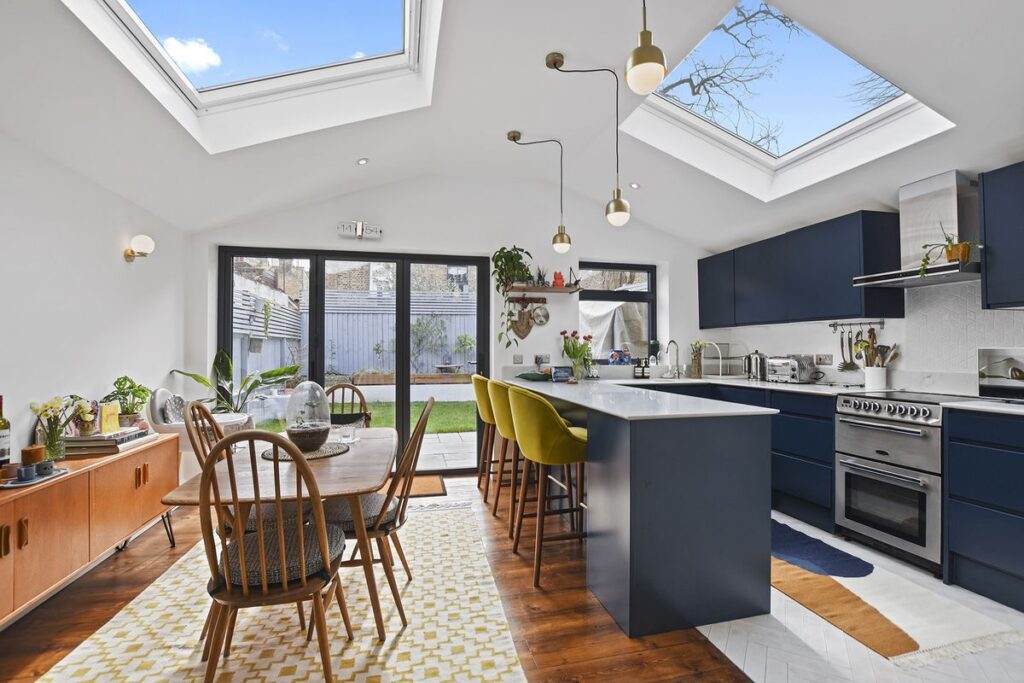
Building Regulations
Building regulations are a set of safety standards that your property must comply with to ensure the well-being of its occupants. Failure to do so may result in a hefty fine or even demolition. These regulations cover a wide range of standards, including hygiene, ventilation and electrical safety.
While some minor repair work might be exempt, major projects like house extensions, loft conversions and internal structural alterations must all follow these rules. Consult an expert to put together a comprehensive building regulations package for your contractor. This will help prevent mistakes during the build and establish clear accountability and responsibility issues arise.
Planning Permission
Does your project require planning permission? Some extensions won’t, particularly smaller outward or upward additions. Larger projects, on the other hand, will require planning permission, as well as certain property types, such as listed buildings or buildings in a conservation area.
For clarity on this, speak to an architecture or planning consultant. They can provide expert advice tailored to your situation and help navigate the planning process.
Insurance
When it comes to insurance, you need to consider both your home insurance and insurance coverage needed during construction. This is a key part of the process to ensure you have the right protection throughout your project.
Firstly, your completed extension might increase your existing home insurance price, so talk to your current provider to put a plan in place.
It’s also important to note that your standard home insurance will not cover you during construction. You will need either site insurance or unoccupied building insurance to protect your property until work is finished. Talk to your provider about these options.
And don’t rely solely on your builder’s insurance, as this will typically cover damages caused by their word and not natural occurrences such as weather damage.
Claiming VAT
In some instances, you might be eligible to claim VAT relief on your house extension. This would be the case if you work with local tradesman who aren’t VAT registered (although you’d still have to pay VAT on materials) or if your home is a listed building, or you’re renovating an unoccupied home.
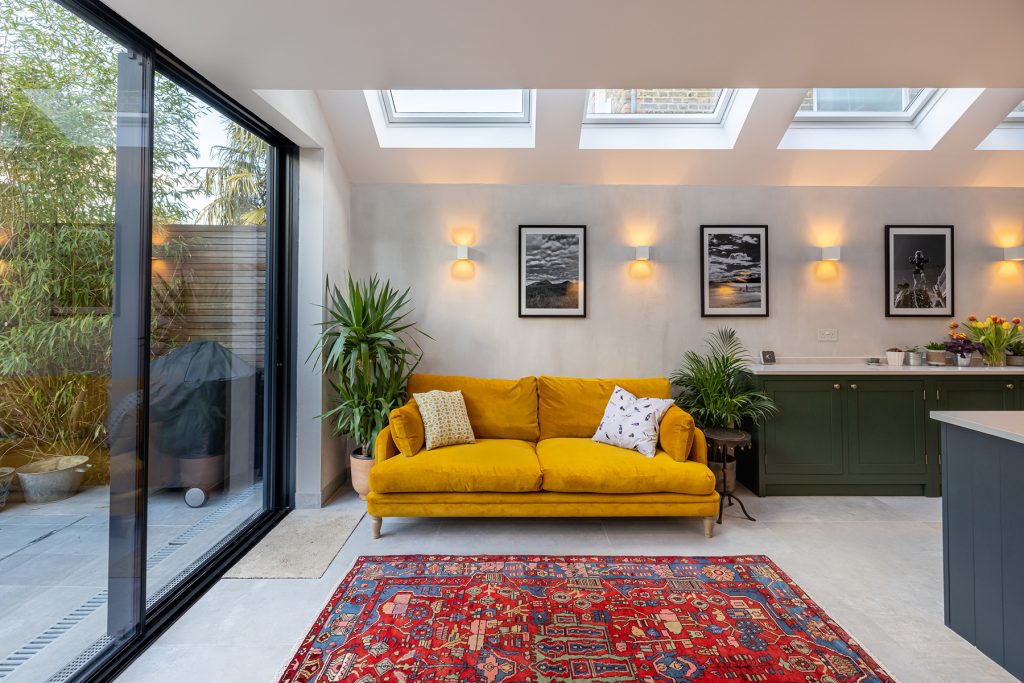
Living Situation
You’ll need to decide whether you are going to live on site while the works are going to stay elsewhere. Consider the feasibility of living on-site and how it might impact the construction process.
Living on site might save you money, especially if your only other option is to rent elsewhere. However, this decision could prolong the build timeline and add unnecessary stress and discomfort, ultimately impacting the project’s costs and overall success.
Neighbours
Your relationship with your neighbours is an important factor to consider. Depending on the permissions required and the extent of your project, they could have a significant impact on the build.
Establishing open communication with them early on is essential. Especially when it comes to planning permission and party wall acts, it’s a good idea to inform your neighbours well in advance. Use professional contracts and agreements to formalise any arrangements, ensuring everyone’s interests are protected and that everyone remains in the loop.
Thinking about extending? Not sure where to start? Contact Build Team today and embark on a seamless journey to transform your home with our expertly guided and comprehensive extension services.








